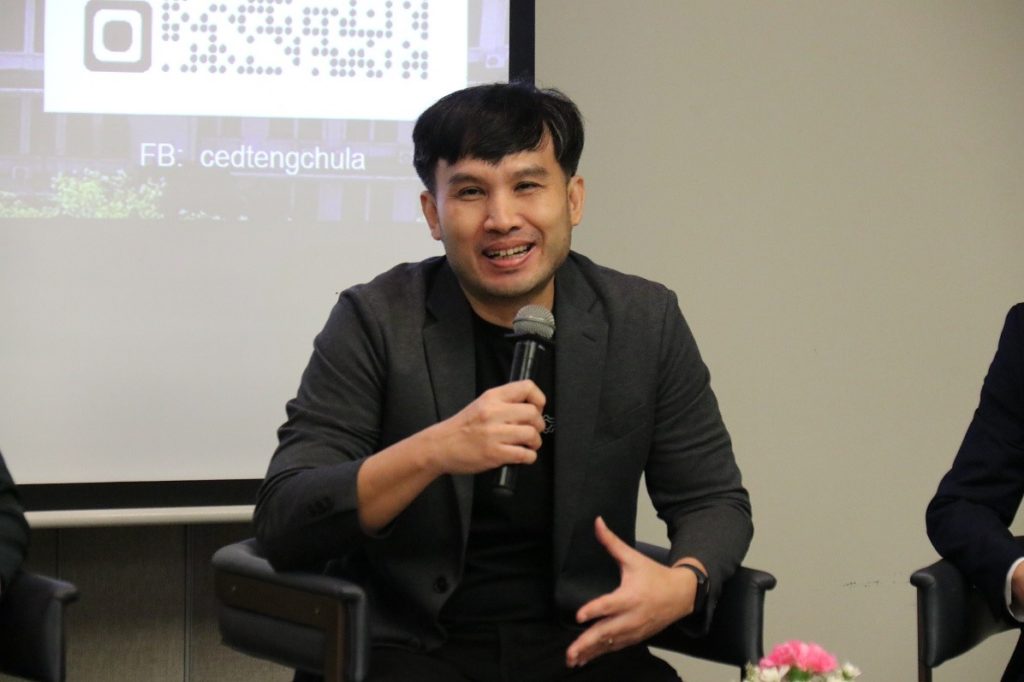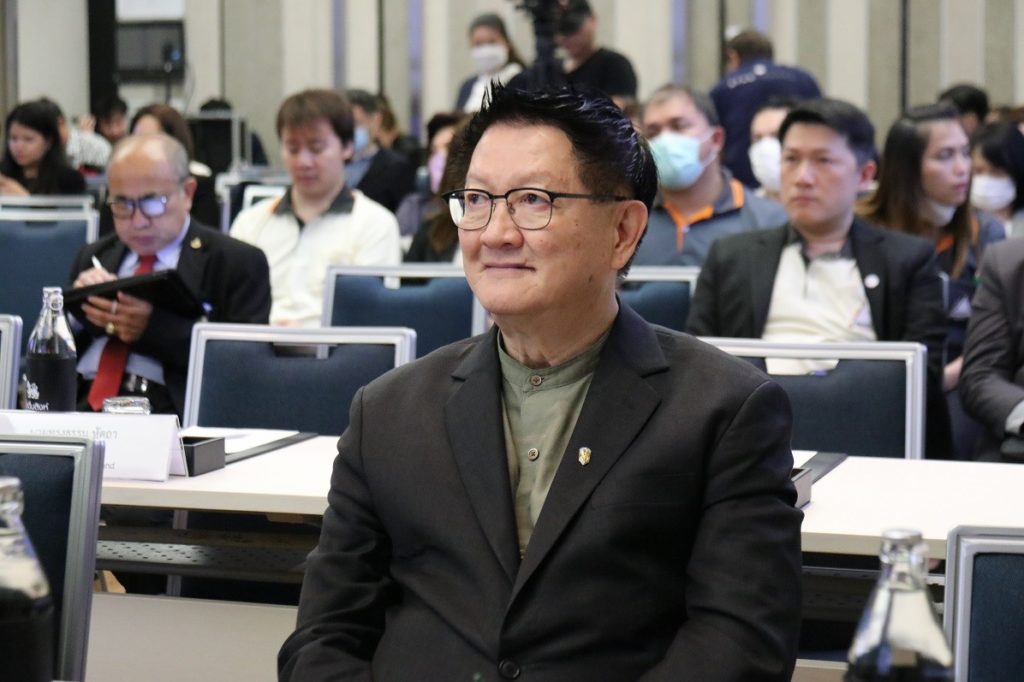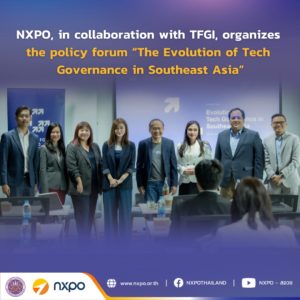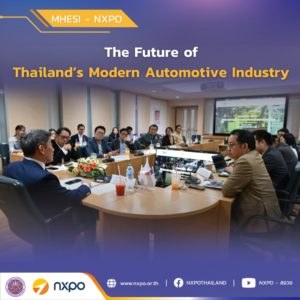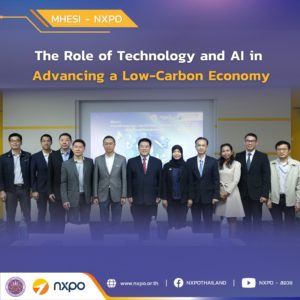On 5 March 2024, NXPO hosted an event to promote the STEMPlus Platform. The event featured representatives from NXPO, the Revenue Department, and King Mongkut’s University of Technology Thonburi (KMUTT) who shared their insights and perspectives on workforce development.
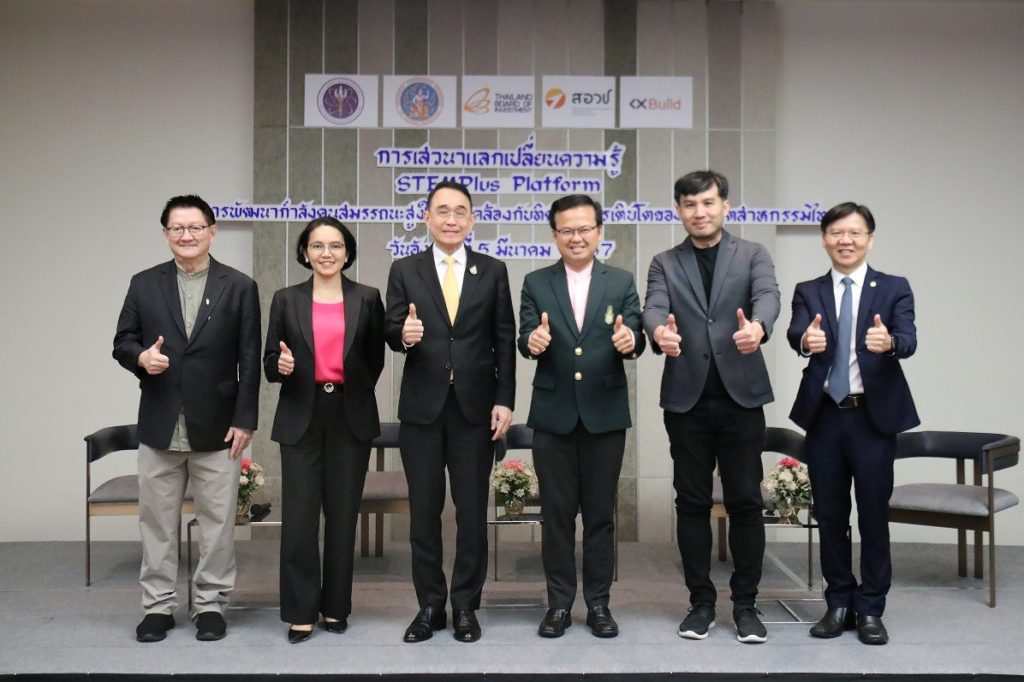
During the opening session, NXPO Vice President Asst. Prof. Dr. Poolsak Koseeyaporn outlined the background and significance of STEMPlus Platform, citing the imperative need for high-skilled workforce development driven by the dynamics of the global landscape. The STEMPlus Platform was established to bring together industry, academia and government to develop skilled workforces to meet the demands of the current and future labor market. Since the inception, the platform has certified over 800 training courses contributing to the upskilling of 80,000 workers, and 5,725 STEM employments, both represent key incentives under the Thailand Plus Package. The numbers of STEM employments and upskilled workers are expected to reach 10,000 and 100,000, respectively by the end of this year.


In addition, Mr. Wannaphop KlomKlieng, Chief Operating Office of KX Knowledge Xchange at KMUTT, introduced services offered by the STEMPlus Platform that cater to enterprises, academic institutes and the public. These services include the certification of STEM employment and training courses in support of the Thailand Plus Package, submission of job openings, publication of certified courses, and resume submission for job applications or project participation. The platform also provides information on workforce development benefits, STEM workforce statistics and tax incentives offered to foreign investors for relocating their businesses to Thailand. Under the current arrangement with the Revenue Department, NXPO will continue to serve as the certifying body for STEM employment and training courses until 2025.


During the event, a panel discussion was held with a focus on workforce development to boost the industrial growth. Distinguished speakers in this session included Mr. Kan Trakulhoon, Chairman of Board of Directors at Advanced Info Service Public Company Limited; Dr. Kitipong Promwong, President of NXPO; Ms. Saowakon Meesaeng, Director of Tax Policy and Planning Division at the Revenue Department; and Asst. Prof. Dr. Attawith Sudsang, Head of the Department of Computer Engineering at Chulalongkorn University.
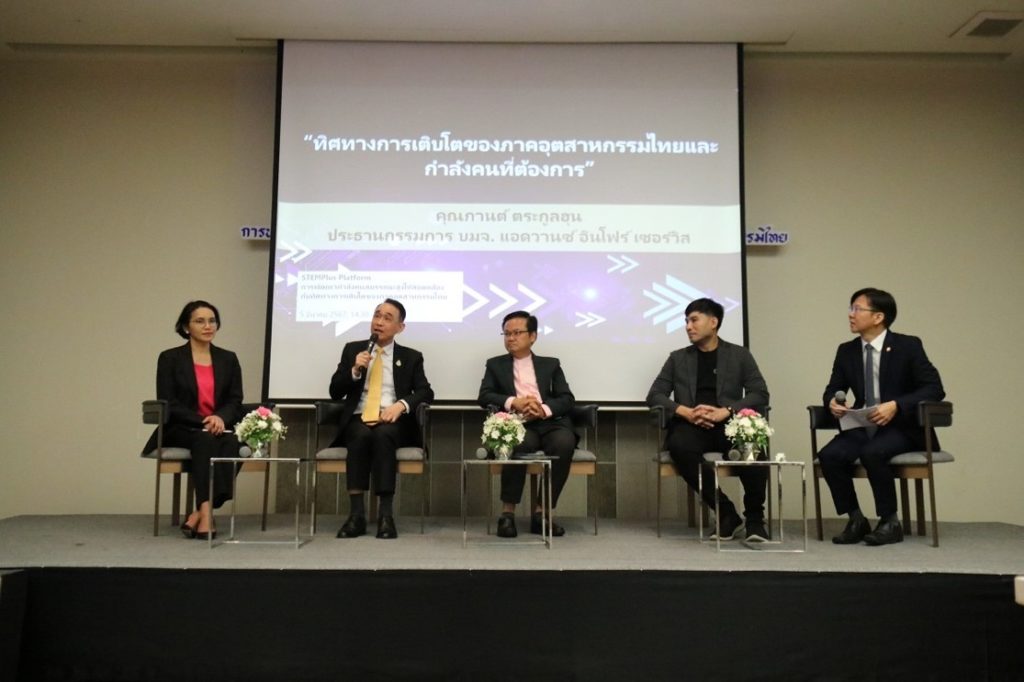
Mr. Kan Trakulhoon praised the STEMPlus Platform for pioneering workforce development efforts to bolster Thailand’s target industries. This initiative also helps attract foreign investors to boost inbound investment. He also discussed the recent World Competitiveness Rankings published by the International Institute for Management Development (IMD), which revealed Thailand’s improvement in economic performance, government efficiency, business efficiency, and infrastructure. However, Thailand’s rankings in education, public health and environment dropped from the previous year, indicating the need for robust cooperation between the public and private sectors to overcome these challenges. He also emphasized the need for businesses across all sectors to adapt to the new rules, especially those concerning the environment, to thrive in the global market landscape.

Dr. Kitipong Promwong highlighted four challenging issues faced by Thailand: 1) slow economy with an average growth of 3.2% over the past two decades, 2) climate change which impacts trade and investment, 3) poor income distribution, and 4) shortage of skilled workforces to support the government’s target industries. Skilled workforces is critical to Thailand’s vision to become the hubs for eight industries, including tourism, wellness & medical, agriculture & food, aviation, logistics, future automotive manufacturing, digital economy, and finance, as recently announced by Prime Minister Srettha Thavisin.

Ms. Saowakon Meesaeng outlined various tax incentives to promote workforce development and boost the economy. These include tax deductions on investment in automation systems, reduced personal income tax rate of 17% for highly skilled professionals, 150% corporate tax deductions on STEM employment, and 250% corporate tax deductions on employee training expenses.
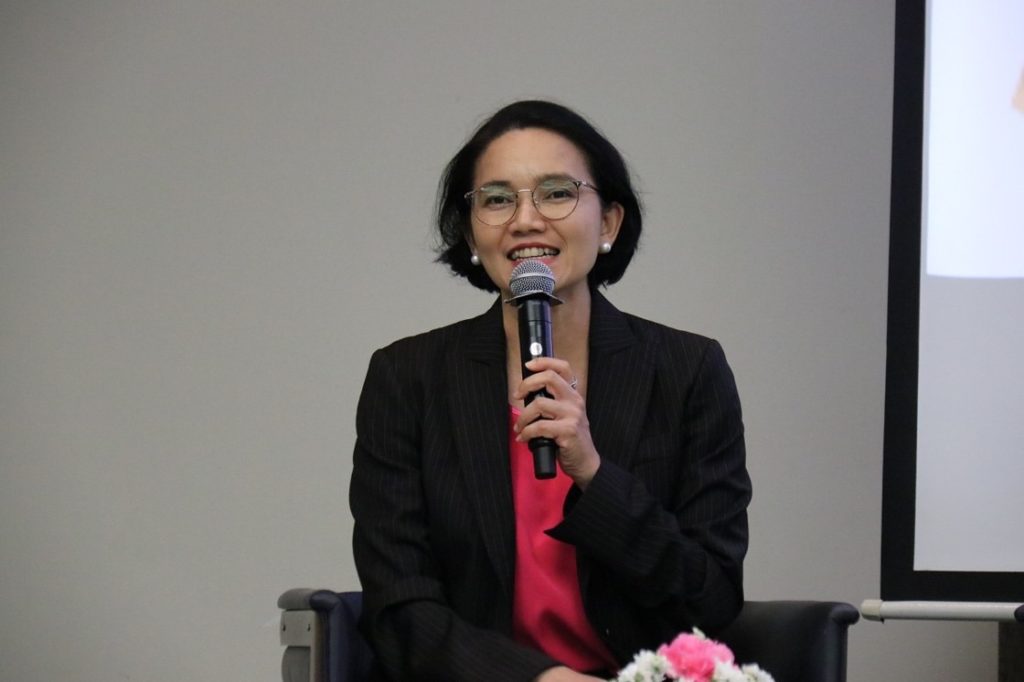
Asst. Prof. Dr. Attawith Sudsang revealed that over the past decade, universities have been preparing for digital disruption accelerated by climate change, an aging society, and low birth rates. As digital technology enables productivity and efficiency improvement across all industries, it is imperative to overhaul university courses to meet demands of future industries.
